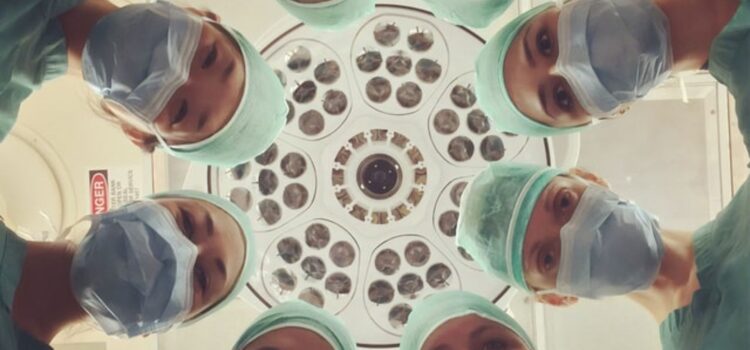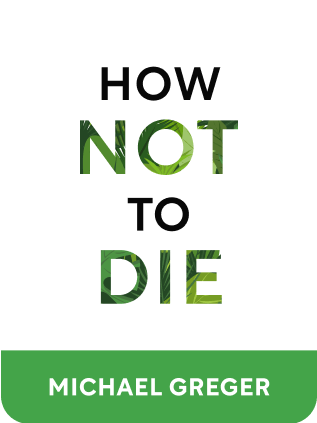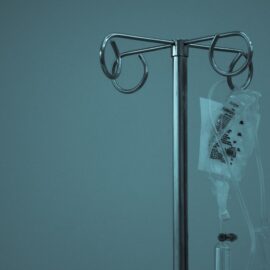

This article is an excerpt from the Shortform book guide to "How Not to Die" by Michael Greger. Shortform has the world's best summaries and analyses of books you should be reading.
Like this article? Sign up for a free trial here .
What is iatrogenic death? Is it possible to lower the patient’s risk of dying from medical treatment?
Iatrogenic death is death caused by medical treatment. Although medical treatment outcomes are often out of patients’ control, there are some things that can be done to lower its risks.
Here’s are some ways iatrogenic death can be avoided.
Iatrogenic Death Statistics
About 225,000 people die from iatrogenic death annually. This includes:
- 106,000 deaths from side effects from medications
- 99,000 deaths from hospital-acquired infections
- 20,000 deaths from hospital errors
- 12,000 deaths from unnecessary surgery complications
- 7,000 deaths from wrong medication
- 199,000 deaths from drug side effects
How Not to Die from Medical Treatment
Reduce medical error.
- Residents used to have 36-hour shifts until they were shortened. Residents who undergo all-nighters increase serious medical errors by 36% and diagnostic errors by 5x.
Reduce radiation through diet and reducing exposure.
- Medical treatment and diagnose entail many sources of radiation:
- A single CT scan for a baby girl could cause cancer at a rate of 1 out of 150.
- A chest CT has the same cancer risk as 700 cigarettes.
- An angiogram could cause cancer in 1 out of 270 women.
- A cross-country flight could expose you to as much radiation as a chest x-ray.
- Reduce radiation damage through antioxidants in foods like spinach and kale. Vitamin C and E supplements don’t seem to help.
- Survivors of the Hiroshima and Nagasaki bombings show that plant-rich diets cut cancer risk by 36%.
- Ginger, garlic, turmeric, goji berries, mint leaves, and lemon may also be protective against radiation.
Use diet instead of drugs.
- Patients routinely overestimate the power of drugs to treat disease.
- Patients believe statins are 20x more effective than they actually are. In reality, the benefit of preventing heart attack is <5% over a period of 5 years.
- In comparison, a plant-based diet may reduce the risk of heart attack by 60% over 4 years
- Patients who overtrust drugs may be less likely to adopt lifestyle changes.
Reconsider taking aspirin.
- Salicylic acid (the active ingredient in aspirin) acts as a blood thinner by inhibiting pro-coagulant enzymes. It also suppresses proinflammatory prostaglandins. People at risk of heart attacks take it regularly.
- Aspirin is not generally recommended for people who haven’t had the first heart attack, because of the side effects it causes.
- Fruits and vegetables contain salicylic acid—blood levels of salicylic acid in people on plant-based diets are comparable to that in people who take low-dose aspirin.
- Cumin, chili powder, paprika, and turmeric have the highest concentration of salicylic acid. As suggestive evidence, India has very low rates of colon cancer, which is the most sensitive cancer to aspirin.
- Organic produce seems to have more salicylic acid, possibly because salicylic acid is used as a defense mechanism against bugs. Produce that rely on pesticides don’t have a need for this defense mechanism.
- Fruit and vegetables may cause fewer side effects than taking aspirin. Furthermore, if you take it naturally in diet, salicylic acid comes packaged with other gut-protective nutrients.
Understand colonoscopies.
- Starting at age 50, you should get a colonoscopy per decade, have your stool tested for blood each year, or have a sigmoidoscopy every 5 years.
- It’s unclear which of these three options is best until the experimental results come out.
- But doctors generally over-prescribe colonoscopies because they bill the most.
- Serious complications, like perforations and bleeding, happen in 1 out of 350 colonoscopies.
- Eating peppermint oil capsules reduces the strength of colon contractions, which can reduce complications.

———End of Preview———
Like what you just read? Read the rest of the world's best book summary and analysis of Michael Greger's "How Not to Die" at Shortform .
Here's what you'll find in our full How Not to Die summary :
- The health benefits of a plant-based, whole-food diet
- How to reduce your risk of developing the most common diseases that can kill you
- The 12 foods you should eat daily to maximize health benefits






